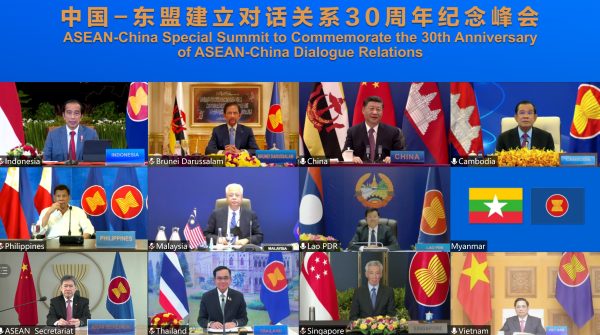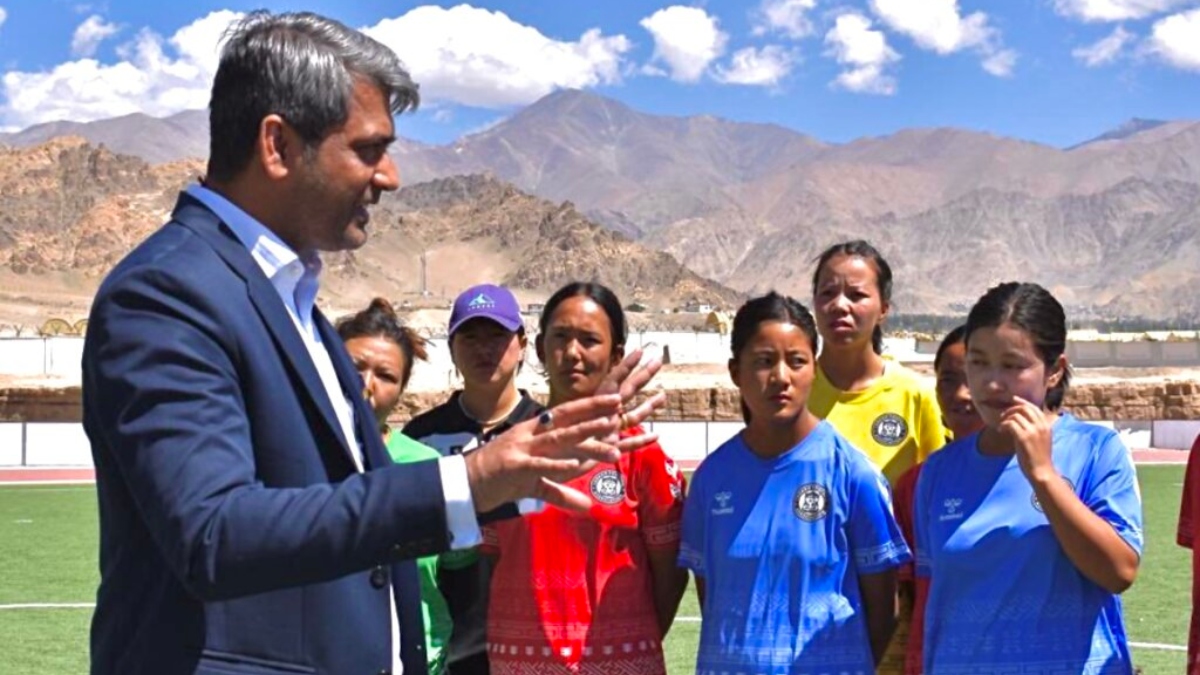Last month’s long-awaited summit between U.S. President Joe Biden and eight Southeast Asian leaders in Washington has put China on alert. Despite the former’s underwhelming economic deliverables, the U.S. secured ASEAN’s support for the upgrade of its diplomatic status to a “comprehensive strategic partnership.”
China, in contrast, has long been plagued by a trust deficit among Southeast Asians. Despite its overwhelming contribution to the regional economy, a recent survey of Southeast Asian elites by Singapore’s ISEAS-Yusof Ishak Institute showed that China was the least trusted country in the region. The same survey lauded the U.S. as the second-most trusted partner, after Japan.
If China can provide what the U.S. is lacking in Southeast Asia, why doesn’t the country elicit the same amount of trust?
Maritime and territorial disputes might be the obvious answer. Yet, the problem stems from the deeper issues of China’s disregard for the value of autonomy and inclusivity in the region. Indeed, China’s regional strategy is driven by flawed assumptions of how diplomacy works in Southeast Asia.
Money Can’t Buy Autonomy
Beijing’s first assumption is that Southeast Asian countries are willing to boost economic development at the expense of their autonomy.
China is right to understand that regional countries prioritize public goods and economic development, and that one of the shortcomings of Washington’s Indo-Pacific strategy is its overly militaristic nature. Biden’s woefully belated negotiation on the Indo-Pacific Economic Framework has been overshadowed by various trade agreements that China has championed in the region.
What Chinese leaders misunderstand is that Southeast Asians won’t trade their autonomy to secure economic objectives alone. Decades of foreign interventions, and struggles against colonial rule, have made sovereignty sacrosanct. Maintaining autonomy, first and foremost, has always been the goal of statecraft in the region.
Unfortunately, China’s economic influence outweighs its respect for the integrity of Southeast Asian countries, and the surge of Chinese economic engagement has run in parallel with an expansionism that threatens the region.
China’s trade volume with the 10 members of the Association of Southeast Asian Nations (ASEAN) has nearly doubled from $443 in 2013 to a whopping $878 billion in 2021. At the same time, Beijing has built over 3,200 acres of artificial landmass and fully militarized at least three islands in the South China Sea, since President Xi Jinping first began promoting his “neighborhood diplomacy” in 2013.
China’s strategy aims to amplify its economic credentials and, simultaneously to “subdu[e] other problematic aspects of its behavior, including in the South China Sea,” Hoang Thi Ha from the ISEAS-Yusof Ishak Institute argued recently.
The results have been quite the opposite: China’s heavy-handed attitude has made the country unable to utilize its economic influence as the source of trust.
As neighbors who live only blocks away, Southeast Asians have observed how China has punished other countries, including the ill-considered sanctions against Australia. Looking at Chinese coercion in the South China Sea, it’s no surprise that regional countries mistrust Beijing’s intentions.
Southeast Asia is an Open Region
China’s second mistaken assumption is that Southeast Asian countries are willing to submit exclusively to a single power’s sphere of influence – as long as it’s beneficial.
Apart from economic inducement, China has incorporated “discourse powers” as the part of its regional strategy. Xi has coined various diplomatic slogans that stress “commonality” between partners, including the “Community of Common Destiny” and, most recently, the “Global Security Initiative.”
However, these narratives only give the impression that China wants to build an exclusive partnership that puts Southeast Asian countries under China’s hierarchical control. Regional leaders do not forget when then-Chinese Foreign Minister Yang Jiechi commented, during an ASEAN Regional Forum meeting in Hanoi in 2010, that “China is a big country and other countries are small countries, and that’s just a fact.”
While it might be true that some parts of Southeast Asia had historically lived under a hierarchical order centered on China – the so-called “tributary system” – the region as a whole never subscribed to a single order. It has always been open and receptive to various sources of external influences. “The absence of a universally accepted ‘operating system’ is a feature, not a bug, of regional order” in Southeast Asia,” writes Evan Laksmana of the National University of Singapore.
Claiming that Southeast Asia was exclusively part of China’s sphere of influence is historically invalid.
What Southeast Asian countries desire is an open and inclusive regional order where their individual autonomy can be maximized. China’s strategy contradicts this goal. This includes China’s insistence on restricting the foreign (i.e. Western) military presence in the South China Sea via the negotiation of a Code of Conduct, and its other attempts to make the region exclusive to one’s influence.
No One’s Backyard
It’s impossible to court Southeast Asian countries while threatening the values that underpin their preferred version of regional order. China’s economic influence and already-weak discourse power will become impotent if the country cannot first respect the sovereignty and autonomy of the nations in the region.
China should abandon the idea that it can “buy” Southeast Asian countries with economic goods and political jargon. Ahead of the 20th Chinese Communist Party congress later this year, policymakers in Beijing should consider a new regional strategy that is more empathetic and adapted to the local context. Showing more respect by not treating Southeast Asian nations as part of China’s backyard is only the first step.






















